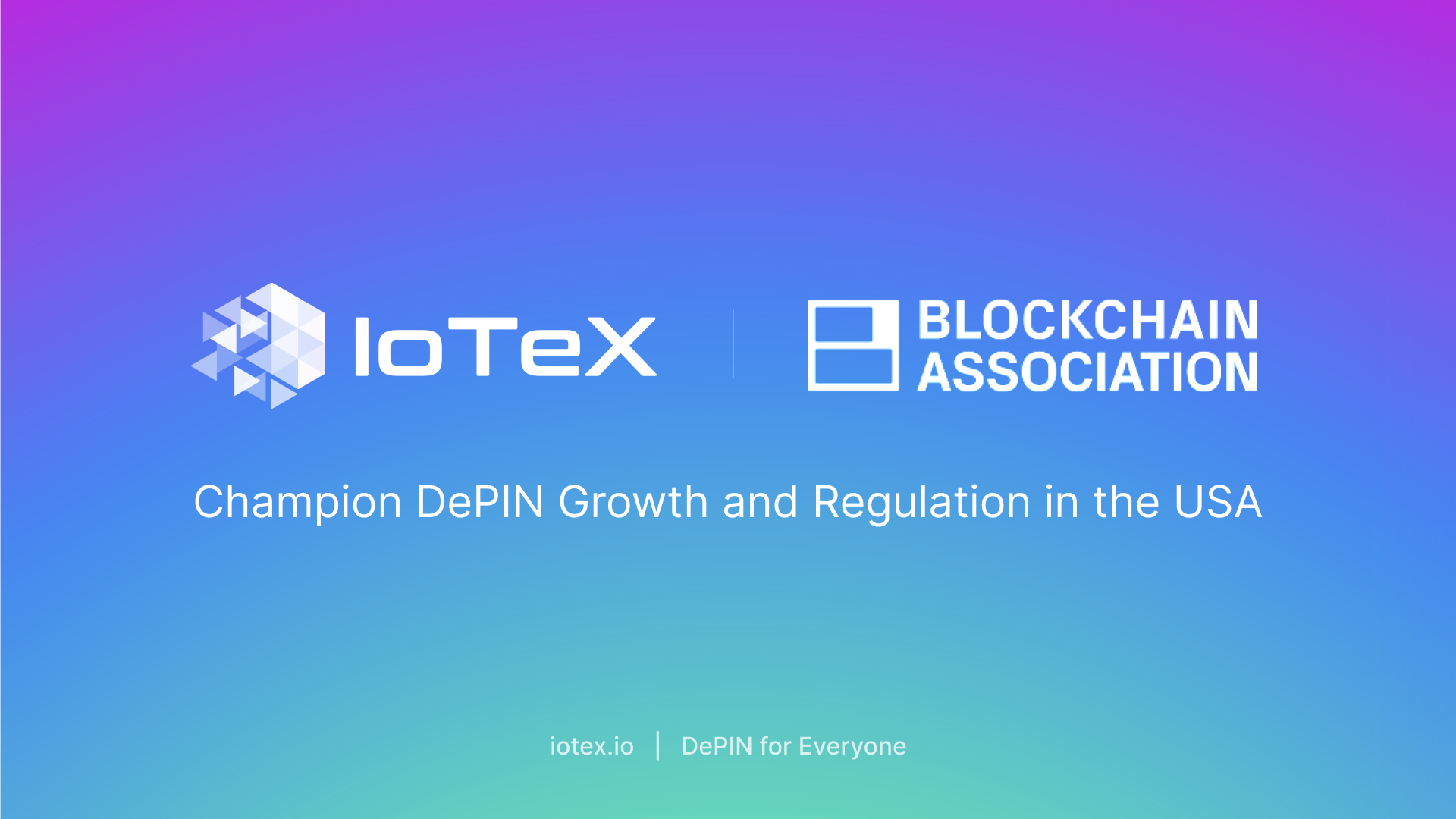Latest DePIN News

4 months ago
Decentralized Cloud Solutions: The Future of AI Computing
The artificial intelligence (AI) sector is experiencing rapid growth, yet many companies still rely on centralized services like Amazon Web Services (AWS) for their cloud computing needs. This reliance can lead to high costs and potential outages. Wes Levitt, head of strategy at Theta Labs, argues that decentralized cloud computing offers a solution to these challenges. In a recent episode of The Agenda podcast, Levitt discussed how decentralization not only reduces costs but also enhances reliability and flexibility for users. He emphasized that by moving away from a few centralized points of failure, Theta Labs aims to democratize access to computing power, particularly in the AI and academic sectors.
Theta Labs is the driving force behind the Theta Network, which positions itself as a decentralized cloud solution for AI, media, and entertainment. Levitt noted that while the company initially focused on media, it has seen a significant increase in AI-related clients, especially from academic institutions. He highlighted partnerships with top Korean universities and the University of Oregon, explaining that decentralized cloud services provide a cost-effective alternative for organizations that cannot afford AWS. This flexibility is crucial for academic institutions, which often need to scale their computing resources rapidly for research projects before conferences and then scale back down afterward.
The decentralized AI niche has seen remarkable growth, with the market capitalization of AI and big data crypto projects skyrocketing from $16.17 billion in December 2023 to over $70 billion by December 2024. Despite this surge, Levitt clarified that the goal of Theta Network is not to eliminate AWS or other centralized cloud providers. He acknowledged that there will always be use cases for centralization, particularly for specific applications requiring focused resources. However, he remains optimistic about the potential for decentralized AI to compete with centralized solutions in the future, suggesting that as demand for decentralized services grows, they could become equally significant in the tech landscape.

4 months ago
Empowering Data Ownership in Web3 with iExec
In the evolving landscape of Web3, data ownership has emerged as a critical concern for developers and users alike. As decentralized applications (dApps) gain traction, questions surrounding who can access user data, how it is utilized, and whether users can reclaim control after sharing become paramount. The promise of Web3 is to empower users with control over their personal information, necessitating a shift in how developers approach data security and governance. iExec offers a suite of solutions designed to address these challenges, ensuring that users retain full control over their data even after it has been shared.
Developers face several key challenges regarding data ownership, including security, control, and trust. Users often hesitate to engage with dApps due to concerns about unauthorized access to their data. iExec's tools, such as DataProtector, provide robust encryption for both data storage and sharing, allowing users to encrypt files before sharing them on decentralized platforms. Additionally, iExec's on-chain data tokenization system enables users to transform their information into digital assets, granting them the ability to grant or revoke access as needed. This ensures that users can share sensitive information, like medical records, while maintaining control over who can access it and for how long.
Moreover, iExec's privacy-enhancing tools, such as Privacy Pass, empower Web3 users to monetize their personal data without sacrificing ownership or privacy. By allowing users to participate in targeted marketing campaigns while keeping their personal information confidential, iExec facilitates a secure environment for data monetization. The combination of blockchain technology and Trusted Execution Environments (TEEs) ensures that sensitive data remains protected during processing, allowing third-party applications to interact with encrypted datasets without ever accessing raw information. As developers navigate the complexities of data ownership in Web3, iExec provides the necessary tools to build trust and empower users in the decentralized ecosystem.

4 months ago
Austin Federa Leaves Solana to Co-Found DoubleZero Protocol
Austin Federa Leaves Solana to Co-Found DoubleZero Protocol
Austin Federa, the former Strategy Lead at Solana Foundation, has made the tough decision to leave the project after four years. In a statement on Dec. 4, Federa expressed the difficulty of his decision but highlighted his excitement for his new venture. He is co-founding DoubleZero, a new protocol and network focused on managing high-performance, permissionless networks. DoubleZero is not a traditional layer 1 or layer 2 protocol but an innovative N1 network designed to optimize blockchain operations by increasing bandwidth and reducing latency.
According to Federa, DoubleZero aims to support tens of millions of transactions per second and serve as a neutral base layer infrastructure for high-performance blockchains. The project will operate as a permissionless network of dedicated fiber and subsea cables, involving independent contributors. The network will provide filtration and verification services through network devices running open-source code, offering improved efficiency and spam prevention in transactions.

4 months ago
The Rise and Future of Decentralized Physical Infrastructure Networks (DePIN)
Decentralized Physical Infrastructure Networks (DePIN) are emerging as a transformative force in the blockchain landscape, utilizing decentralized protocols to manage physical facilities and address inefficiencies in centralized resource networks. Coined by the Web3 media and research firm Messari, DePIN has gained traction since its introduction, particularly in the latter half of 2023 and throughout 2024. These projects aim to mitigate issues such as human error, malfunctions, and financial opacity, offering more secure and cost-effective alternatives. With approximately 296 active DePIN projects currently, this sector is witnessing exponential growth, indicating a robust interest in decentralized solutions across various industries, including AI, mobility, and health.
The evolution of DePIN can be traced back to early blockchain projects like IOTA and Filecoin, with Helium's launch in 2019 marking a significant milestone for decentralized connectivity. As the term DePIN gained popularity, it encompassed a growing number of projects that leverage blockchain for data management and incentive distribution. By employing a 'plug and play' system, DePIN networks facilitate the interconnection of independent infrastructures, such as IoT devices and decentralized GPU grids. This innovative approach enables efficient data processing and administrative functions, allowing for diverse applications ranging from decentralized ride-sharing to computing resource networks.
Currently valued at $33 billion, the DePIN market is thriving, with several projects achieving market capitalizations exceeding $1 billion. As we look ahead to 2024 and beyond, key developments to watch include the integration of AI, the emergence of multi-token ecosystems, and the expansion into trade finance. Despite facing challenges such as legal uncertainties and the complexity of blockchain technology, DePIN networks are poised for increased adoption across various sectors. By removing intermediaries and creating balanced networks, DePIN could redefine resource management and utility in the decentralized world, making it essential for potential investors to conduct thorough research before engaging with these innovative projects.

4 months ago
Apillon Launches Decentralized Cloud Function Service for Web3 Developers
Apillon has announced the launch of its Cloud function service in collaboration with Acurast, aiming to revolutionize backend operations for Web3 developers. This decentralized, serverless infrastructure is designed to enhance performance, reduce costs, and provide maximum flexibility without compromising security. By leveraging Apillon’s new service, developers can focus on critical tasks without the fear of downtime, aligning perfectly with the core values of Web3. This initiative addresses the ongoing challenge of many decentralized applications (dapps) relying on traditional centralized cloud providers, which pose risks such as single points of failure and lack of transparency.
The partnership between Apillon and Acurast seeks to bridge the gap between decentralized solutions and the robustness offered by centralized counterparts. Apillon allows developers to deploy cloud functions seamlessly, supporting JavaScript, TypeScript, and Node.js code. The platform is equipped with API, SDK, and CLI tools for efficient deployment and management. Each deployment generates a custom HTTPS gateway, enabling familiar HTTP POST requests for Web2 developers. Additionally, the integration of Acurast’s confidential compute capabilities ensures unparalleled security and privacy for sensitive workloads, fostering innovation while maintaining data integrity.
The benefits of Apillon’s Cloud Function Service extend beyond mere functionality. It offers scalability, allowing automatic adjustments based on dapp demands, and cost efficiency through a pay-as-you-go model. This service is built specifically for Web3, enabling seamless interactions with smart contracts and off-chain data. With the promise of reliability and a decentralized environment, Apillon and Acurast are paving the way for a future where Web3 applications can thrive without the constraints of traditional infrastructure, empowering developers to focus on innovation and creativity.

4 months ago
io.net and Mira Network Partner to Enhance Trustless AI Verification
In a significant development within the blockchain and AI sectors, io.net and Mira Network have announced a strategic partnership aimed at enhancing trustless AI verification. This collaboration combines io.net's decentralized GPU computing capabilities with Mira Network's advanced consensus techniques to address the ongoing challenges of accuracy, reliability, and scalability in AI outputs. The integration of these technologies is expected to deliver faster, more accurate, and cost-efficient validation of AI-generated data, ultimately improving operational efficiency and reducing latency for Mira Network's services.
At the core of this partnership is Mira Network's consensus-driven AI verification system, which significantly lowers error rates. By utilizing io.net's extensive decentralized GPU network, Mira will have access to a vast pool of cost-effective computing power, facilitating quicker and more reliable AI output validation. This collaboration also supports Mira's Node Delegator Program, which encourages contributors to delegate GPU resources and participate in AI verification operations, thereby democratizing access to AI technology and enabling participants to earn rewards.
As the demand for reliable AI solutions grows, the partnership between io.net and Mira Network is poised to set new standards in AI verification accuracy. Current research indicates that advanced AI reasoning can have error rates as high as 30%, but through their consensus approach, Mira aims to reduce these errors to below 5%, with a long-term goal of achieving less than 0.1%. This ambitious target, supported by io.net's global GPU infrastructure, will allow Mira Network to scale its verification processes effectively while maintaining high performance and low latency, ensuring that it meets the needs of its expanding client base in the evolving AI landscape.

4 months ago
Akash Network: A Leader in Decentralized Physical Infrastructure
In 2024, the cryptocurrency landscape has been dominated by the trend of Decentralized Physical Infrastructure Network (DePIN), with the Akash Network emerging as a significant player in this space. Co-founded by Greg Osuri, a notable software developer and founder of AngelHack, Akash operates as an open-source "super cloud" that facilitates the buying and selling of computing resources. This model is particularly relevant in the current age of artificial intelligence, where computing power is in high demand. DePIN leverages blockchain technology to streamline access to resources that are typically fragmented, positioning Akash as a viable alternative to centralized computing solutions like Nvidia's chips.
The Akash Network aims to democratize access to computing power, making it more affordable for individual users. Osuri emphasizes the platform's core values, stating that Akash provides users with the "right to compute," promoting freedom from censorship and encouraging free thought. The native token of the Akash Network, $AKT, serves as the currency for transactions within this ecosystem, further integrating the blockchain technology into everyday computing needs. This innovative approach has garnered significant attention and usage among users.
In a remarkable demonstration of its growing popularity, Akash reported a staggering 1,729% increase in year-over-year user fees in the third quarter of 2024. This surge indicates a strong demand for decentralized computing solutions and highlights the potential of Akash to reshape the future of cloud computing. As DePIN continues to evolve, Akash Network stands out as a pioneering force in making computing resources accessible and affordable for all users, aligning with the broader trends in the cryptocurrency space.

4 months ago
IoTeX Advancing Regulatory Clarity for DePIN Projects in the U.S.
Advancing Regulatory Clarity for DePIN Projects in the U.S.
IoTeX, a leader in Decentralized Physical Infrastructure Networks (DePIN), has recently joined the Blockchain Association in Washington, D.C. This strategic move aims to enhance regulatory clarity and promote the adoption of DePIN technology and broader blockchain applications in the U.S. DePINs bridge real-world devices and infrastructure with the digital realm, offering transformative potential. However, regulatory uncertainty has been a barrier to their widespread adoption. By collaborating with policymakers through the Blockchain Association, IoTeX seeks to create clear pathways for DePIN projects to thrive and expand, ensuring accessibility and compliance for all users. This partnership is crucial for unlocking the full potential of decentralized infrastructure under clear regulations.

4 months ago
Shiba Inu vs. Floki: The Memecoin Showdown
In the latest showdown of the memecoin arena, Shiba Inu ($SHIB) and Floki ($FLOKI) are set to battle for supremacy. Both tokens, riding the coattails of Dogecoin ($DOGE), have carved unique paths in a volatile crypto landscape. As macroeconomic factors, such as the upcoming U.S. CPI data and the indecisive Ethereum/BTC pair, loom large, the altcoin market cap is flirting with levels reminiscent of the 2021 bull run. This environment raises questions about the sustainability of these tokens, especially given the potential for a 25% correction in the altcoin sector. The community strength and speculative nature surrounding these tokens will play a crucial role in their survival amidst the storm.
Shiba Inu, initially launched as a decentralized community experiment, has evolved into a multifaceted ecosystem with ambitions beyond mere speculation. Its offerings include ShibaSwap DEX, plans for an algorithmic stablecoin, and a metaverse project. However, with a staggering total supply of 589 trillion tokens, SHIB faces inflationary challenges, necessitating robust utility adoption to support its valuation. Conversely, Floki, inspired by Elon Musk's dog, combines memecoin allure with tangible utility ambitions, including an NFT gaming metaverse and a DeFi suite. Despite its tighter circulating supply of 9.6 trillion tokens, Floki's heavy whale dominance poses risks of sudden sell-offs, making it vulnerable in bearish market conditions.
From a technical analysis perspective, both tokens exhibit bullish momentum, but caution is warranted due to low trading volumes. SHIB has confirmed a Cup & Handle breakout but may face resistance at $0.0000350, while FLOKI's breakout is similarly dependent on volume spikes above $0.0003. Investors are advised to accumulate during dips and monitor volume closely to avoid potential bull traps. Ultimately, while SHIB offers a broader ecosystem for long-term growth, FLOKI may appeal to those seeking immediate gains. As always, the speculative nature of memecoins necessitates careful planning and risk management for investors navigating this crowded and volatile market.

4 months ago
4EVERLAND: Pioneering Web3 Cloud Computing with a Dual-Token Model
4EVERLAND is revolutionizing the Web3 landscape with its integrated cloud computing platform that merges storage, networking, and computational capabilities. Positioned within the Decentralized Physical Infrastructure Networks (DePIN) and AI sectors, 4EVERLAND aims to facilitate a smooth transition for developers from Web2 to Web3. The platform's economic model is meticulously crafted to ensure network stability and security while promoting a sustainable incentive mechanism. This approach not only accelerates the deployment of resilient infrastructure but also guarantees a fair distribution of benefits among all stakeholders, fostering collaboration towards shared objectives that enhance the ecosystem's overall value.
The dual-token economic model of 4EVERLAND comprises $4EVER, the governance token, and $LAND, the resource-accounting token. $LAND serves as a stable payment system pegged at a fixed exchange rate, ensuring predictable billing for resource consumption. It is strictly used for resource payments within the ecosystem and cannot be traded on secondary markets. Conversely, $4EVER functions as the governance and utility token, enabling holders to participate in decision-making processes and capture value through a buyback mechanism. This dual structure effectively separates resource consumption from governance, providing a streamlined operational model that enhances user engagement and liquidity.
Looking ahead, 4EVERLAND's tokenomics are designed to balance long-term stability with growth opportunities. With a total supply of 10 billion $4EVER tokens, allocations are strategically distributed to incentivize resource providers, support community development, and ensure operational funds. The platform's vision is to establish $4EVER as a pivotal component in the decentralized internet, empowering developers and users to collaboratively build a thriving Web3 ecosystem. As 4EVERLAND continues to evolve, it is poised to become a significant player in the future of decentralized infrastructure and community-driven innovation.
Signup for latest DePIN news and updates